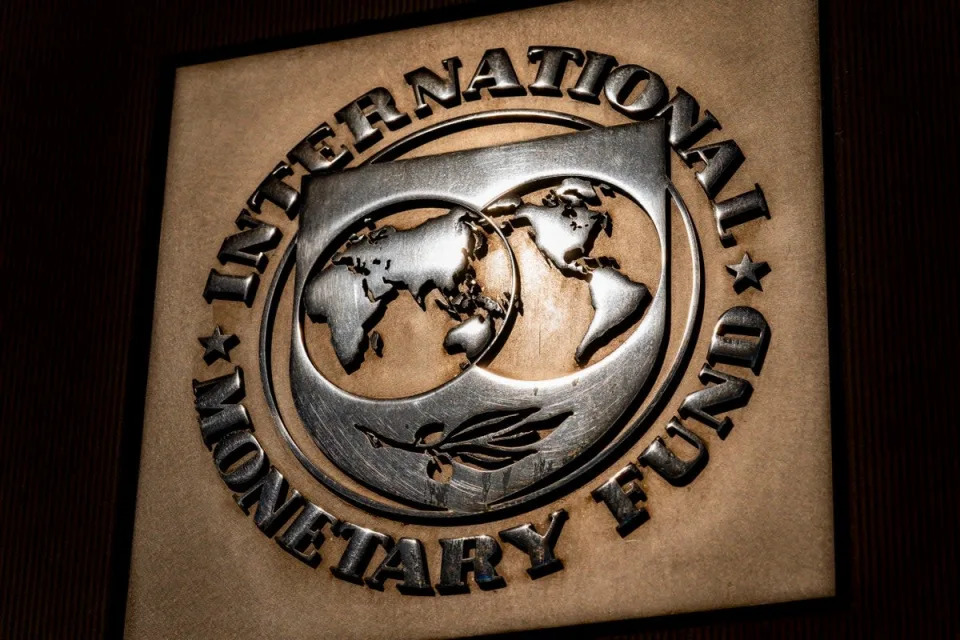The International Monetary Fund is facing pressure to reassess how it rates on loans it makes to needy countries like Ukraine, which is one of the financial body’s biggest borrowers.
The move comes as more countries will have to turn to the IMF, as international food prices and inflation continue to rise.
US Undersecretary of the Treasury Wally Adeyemo said last month that finance ministers in several countries realize they have to pay a price for Russia’s war in Ukraine, especially with the rising prices of foods.
“They will have to go to the IMF, they will need to find help,” Adeyemo said.
However, the IMF tariff system could change through US legislation. An amendment to the National Defense Authorization Act, also known as the defense spending law, would suspend IMF surcharges while their effectiveness and the burden on indebted countries are studied.
That was approved by the US House of Representatives in July. The Senate is expected to vote on the bill in September.
As the IMF’s largest shareholder and a member of its executive board, the United States can push policy decisions and unilaterally veto some board decisions.
Citing the worsening financial crises in Sri Lanka and Pakistan as examples, some accuse China of engaging in debt diplomacy, that is, keeping countries so indebted in money that it also leaves them in debt in international affairs.
Advocates and civil rights organizations make the same complaint against the IMF, saying it undermines its primary role as a last resort for countries in vulnerable positions.
With the risk of a global debt crisis mounting and interest rates rising, the problem has become more pressing for countries seeking to reduce their deficits.
However, some economists and IMF officials say the surcharges amount to responsible lending behavior, as they provide an incentive for members with large outstanding balances to repay their loans promptly. This applies especially to countries that would not otherwise be able to obtain financing from private creditors.
Maurice Obstfeld, a Berkeley economics professor and former head of the IMF’s research department, said that as a lender of last resort, the Fund’s ability to lend is important as low- and middle-income countries face rising interest rates.
“The Fund’s staff is small, and in a crisis, its efforts are best deployed to serve the needs of member countries,” he said in an email to The Associated Press. “Surcharges could be temporarily relaxed in the face of intense pressure on borrowing countries, but at the expense of the Fund’s ability to serve its members in the long term.”
Illinois Congressman Jesús “Chuy” García, who offered the defense spending amendment, told The Associated Press that “it is unfair for the IMF to require countries like Ukraine, which are already heavily indebted, to pay surcharges. These surcharges increase poverty and slow down our global economic recovery.”
Ukraine’s GDP is estimated to contract 35% due largely to the war, according to IMF data.
The country has a balance equivalent to $9.8 billion according to Ukraine’s central bankers. The latest figures estimate that Ukraine will owe the IMF $360 million in surcharges between 2021 and 2023.
Economists Joseph Stiglitz of Columbia University and Kevin P. Gallagher of Boston University wrote earlier this year that “forcing excessive repayments reduces the productive potential of the borrowing country, but also hurts creditors” and requires borrowers to “pay more accurately at the time when they are the most squeezed out of market access in any other way.”
Serhiy Nikolaychuk, deputy chairman of the National Bank of Ukraine, said the country continues to pay its debts “despite the war.”
“Our country will pay its debt and surcharges under previous programs and will fulfill its obligations to the IMF,” Nikolaychuk said. “It will be difficult, but we will pay for it.”
For years, lawmakers, economists and civil rights organizations have called on the IMF, which has lent billions to low-income countries for decades, to end its policy of surcharges.
In January, 18 left-leaning US lawmakers wrote to the Treasury Department calling for the surcharge policy to be scrapped. And in April, some 150 civil society groups and individuals signed an open letter to the IMF, asking for the same thing.
A spokesman for the fund says the surcharges are designed to discourage extensive and prolonged use of IMF resources.
“They only apply to countries with particularly large outstanding loans,” Mayada Ghazala said in an emailed statement, adding that poorer countries are exempt from the surcharges.
Andrés Arauz, a senior fellow at the liberal Center for Economic and Policy Research, says the IMF’s financial position shows that “surcharges are not necessary to have sound finances.”
“There is no excuse for the IMF to punish countries under debt stress with surcharges,” he said. “It also doesn’t make sense, the amount of money the IMF collects from surcharges is trivial relative to its income and capacity.”

